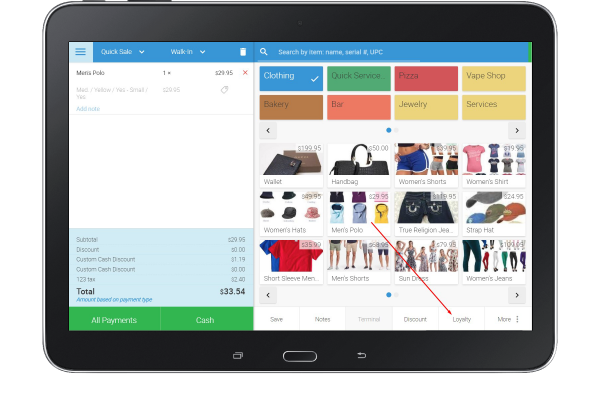CCCam HD Insights
Stay updated with the latest in streaming and tech.
Why Your Customers Are Secretly Cheering for Loyalty Point Systems
Unlock the secret to customer happiness! Discover why loyalty point systems have your customers cheering and how they boost your business!
The Hidden Benefits of Loyalty Points: How They Earn Your Customers' Trust
In today's competitive market, businesses are constantly searching for innovative ways to enhance customer retention and loyalty. One of the most effective strategies is through the use of loyalty points, which not only incentivize repeat purchases but also foster a deeper connection between the brand and its customers. These points create a sense of engagement and reward, allowing customers to feel valued for their continued support. When consumers accumulate loyalty points, they are more likely to return to the brand for future purchases, ultimately leading to increased sales and brand advocacy.
Moreover, loyalty points can significantly build trust over time. As customers regularly earn points, they develop a stronger relationship with the brand, knowing that their loyalty is recognized and rewarded. This creates a cycle of trust, where satisfied customers become advocates for the brand, sharing their positive experiences with others. According to a recent study, brands that effectively use loyalty programs are 1.5 times more likely to retain customers compared to those that don’t. Thus, the implementation of loyalty points not only enriches the customer experience but also solidifies a brand's reputation in the market.

Counter Strike is a popular first-person shooter game that has captivated gamers worldwide since its release. Players engage in tactical gameplay, where they can choose to be part of either a terrorist or counter-terrorist team. For those looking to enhance their gaming experience, you might want to check out a stake promo code to gain some advantages.
Unlocking the Psychology Behind Customer Loyalty Programs: What Your Customers Really Think
Understanding the psychology behind customer loyalty programs is essential for businesses aiming to enhance engagement and retention. At the heart of these programs is the principle of reciprocity; when customers receive rewards, they feel compelled to return the favor by making repeat purchases. This sense of obligation can be further reinforced by personalized experiences that resonate with individual preferences. Customers are more likely to join and remain loyal to programs that not only recognize their behaviors but also cater to their unique needs and desires.
Moreover, the effectiveness of loyalty programs is often linked to emotions and community. According to recent studies, customers don’t just seek transactional benefits; they are also drawn to the social aspect of being part of a brand. Customer loyalty programs that foster a sense of belonging—through exclusive events, community forums, or social media engagement—can significantly enhance loyalty. By creating a vibrant community around your brand, you turn simple transactions into meaningful relationships, ultimately driving long-term loyalty and advocacy.
Are Loyalty Points the Secret Ingredient to Customer Retention?
In today’s competitive marketplace, loyalty points have emerged as a powerful tool in the arsenal of businesses aiming to enhance customer retention. By offering rewards through loyalty programs, brands not only incentivize repeat purchases but also foster a sense of belonging among their users. When customers accumulate loyalty points, they are more likely to return to the brand, driven by the prospect of redeeming points for valuable rewards. This cyclical behavior builds trust and encourages long-term relationships, effectively turning one-time purchasers into loyal advocates.
Furthermore, studies have shown that customers who participate in loyalty programs experience a heightened emotional connection to the brands they frequent. Strong brands leverage this connection, regularly communicating with customers about their loyalty points status, promotional offers, and updates on new rewards. By personalizing this experience, companies not only enhance customer satisfaction but also boost brand recall. In essence, integrating loyalty points into a comprehensive customer retention strategy can indeed be the secret ingredient that drives sustained business success.